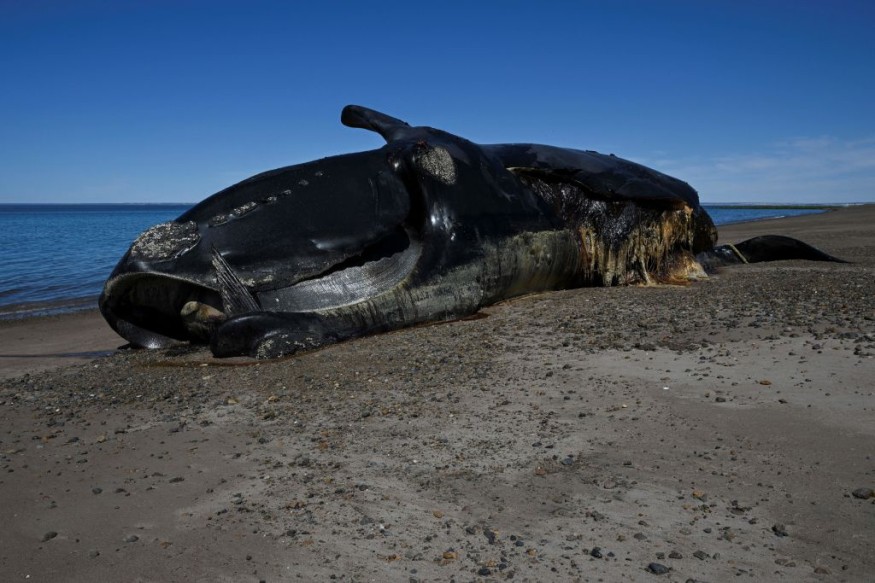Whale deaths have continued along the New Jersey coastline for several months as of early March 2023, igniting further concerns regarding offshore wind farms, which has been blamed by a number of local authorities, residents, and environmental activists. While vessel strikes or ship collisions were attributed for dead whales and other marine animals before, the Garden State eyes for a certain culprit.
In February, New Jersey mayors expressed their growing concern regarding the whale deaths, prompting some of them to issue a letter to the federal government, calling an immediate moratorium for offshore wind turbines. If approved, the coalition of 30 New Jersey mayors' request will temporarily prohibit offshore wind activities until an official investigation or study is completed.
New Jersey Whale Deaths

The New Jersey mayors' coalition addressed the letter to New Jersey Democratic Representative Frank Pallone and Republican Representatives Chris Smith and Jeff Van Drew. The coalition also wrote to Democratic Senators Cory Booker and Bob Menendez, along with copies of the letter sent to President Joe Biden and Governor Phil Murphy, according to Fox News.
The recent whale deaths not only occur in New Jersey but also in Maryland, New York, and Virginia; where in at least 10 dead whales had washed ashore in New Jersey and New York alone since December 2022, Fox News reported.
Prior to the formation of the coalition, US government officials from the United States Geological Survey (USGS) and National Oceanic and Atmospheric Administration (NOAA) concluded that wind turbines can cause noise pollution underwater. However, both the USGS and the NOAA did not linked the energy structures to be the cause of whale deaths.
Offshore Wind Energy Projects
Amid the New Jersey whale deaths, raging debates on whether or not offshore wind energy projects can directly or indirectly kill marine creatures, especially marine mammals like whales, have continued from the national to the local level.
The American Geosciences Institute (AGI) highlights the following advantages and disadvantages of offshore wind farms.
Advantages:
- Offshore wind speeds are faster than their land counterparts, wherein a small increase in wind speed can lead to significant energy production.
- Offshore wind speeds are more reliable source of energy since they are more stable than on land.
- Over half of the US population reside in coastal areas and concentrated in major coastal cities. The construction of offshore wind farms can supplement energy demands in these areas.
Disadvantages:
- Impacts of offshore wind farms on birds and marine animals remain as a subject matter not fully understood.
- Offshore wind turbines are hard to build, especially with an ocean floor of more than 200 feet.
- Offshore wind farms close to the coastline could be unpopular amongst local residents and may affect tourism and property values.
The AGI cited its findings from the Bureau of Ocean Energy Management and U.S. Department of Energy, as well as from the Argonne National Laboratory and the National Renewable Energy Laboratory.
© 2025 NatureWorldNews.com All rights reserved. Do not reproduce without permission.





